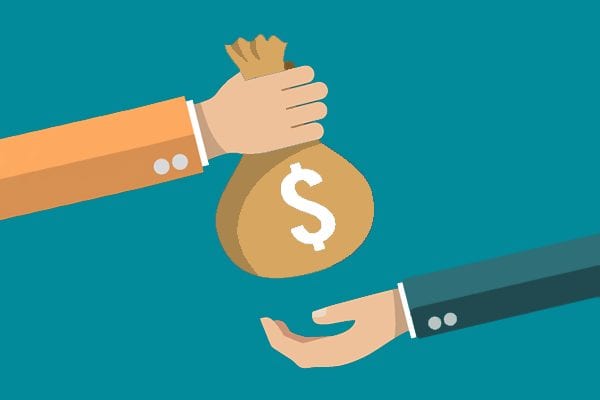Normally, paying off debt is a good thing, right? Like that sweater you bought impulsively – it feels excellent once paid for! But student loans can be tricky. They’re big, sometimes really big, and this question can linger: is paying off student loans early okay, or should you take your time?
Getting rid of student loans can feel like a huge weight lifting off your shoulders. But there can be downsides too, like having less money for other things you need or want.
This article will help you decide whether you should pay off your student loans early. You would not only find the pros and cons, but you would also see whether it is worth it.
Table of contents
- What is a Student Loan?
- What are the Pros of a Student Loan?
- What are the Cons of a Student Loan?
- How to Get a Student Loan- Step-by-Step Guide
- Pros of Paying Off Student Loans Early
- Cons of Paying Off Student Loans Early
- Is Paying Your Student Loan Off Early Worth It? What We Think.
- FAQs
- Conclusion
- References
- Recommendations
What is a Student Loan?
A student loan is a type of loan specifically designed to help students finance their higher education expenses. Financial institutions, banks, or government agencies, such as the Department of Education in the United States, typically offer these loans.
Student loans cover various educational costs, including tuition fees, textbooks, living expenses, and other related expenses. They allow students to pursue their academic goals without paying the total price upfront.
Student loans often have specific terms and conditions, including interest rates, repayment schedules, and eligibility criteria. The terms may vary depending on the lender and the type of loan. In some cases, student loans may have subsidized interest rates, where the government pays the interest on behalf of the borrower while they are in school or during specific deferment periods.
After completing their education, borrowers must repay the loan according to the agreed-upon terms. Repayment can be made in monthly instalments over a specified period, ranging from several years to decades, depending on the loan terms and the borrower’s chosen repayment plan.
Read also: Can I Get Student Loans Before School Starts? Best Expert Advice
What are the Pros of a Student Loan?
There are several pros of using a student loan to finance higher education. Here are some key advantages:
Access to Education
Student loans allow individuals to pursue higher education, even if they do not have the immediate funds to pay for it. This enables students to attend colleges, universities, or vocational schools and gain the knowledge and skills necessary for their chosen career paths.
Financial Flexibility
Student loans offer financial flexibility by allowing borrowers to spread the cost of education over an extended period. Instead of paying the entire tuition upfront, students can make manageable monthly payments over several years, making education more affordable and accessible.
Building Credit History
Successfully managing a student loan and making timely payments can help individuals establish a positive credit history. This can benefit future financial endeavours, such as obtaining loans for a car, home, or business, as lenders often consider credit history when assessing loan applications.
Deferred Repayment Options
Many student loans offer deferred repayment options, which allow borrowers to delay repayment until after graduation or when they are no longer enrolled in school. This feature relieves students who may need more means to make loan payments while still studying.
Loan Forgiveness and Repayment Assistance Programs
Depending on the type of student loan and career path, borrowers may qualify for loan forgiveness or repayment assistance programs. These programs can help reduce or eliminate a portion of the loan debt in exchange for meeting specific criteria, such as working in certain professions or serving in underserved communities.
See also: What Are Financial Aid Refunds? How Does It Work?
What are the Cons of a Student Loan?
While student loans offer various benefits, there are also potential drawbacks and challenges that borrowers should consider. Here are some cons of taking out a student loan:
Debt Burden
Student loans can result in significant debt, mainly if borrowers must finance their education. The accumulation of debt can create a long-term financial burden, impacting post-graduation financial decisions such as saving for a house, starting a family, or pursuing other personal goals.
Interest Accrual
Most student loans accrue interest while the borrower is in school or during deferment periods. This means the total amount owed can increase over time, and borrowers pay more than the initial loan amount. The longer it takes to repay the loan, the more interest will accumulate, potentially increasing the overall cost of borrowing.
Repayment Obligations
Once borrowers graduate or leave school, they are generally required to start repaying their loans, even if they still need to secure a job or have limited income. The monthly payments can be a significant financial obligation and may impact the individual’s ability to meet other financial goals or maintain a desired lifestyle.
Credit and Financial Consequences
Failing to make timely payments or defaulting on student loans can severely affect credit scores and overall financial well-being. Delinquencies or defaults can negatively impact credit history, making it harder to secure future loans or credit, potentially affecting employment prospects, and even leading to wage garnishment or legal actions by lenders.
Also, read: What Happens if You Don’t Pay Your Student Loans Back?
Limited Options for Discharge
Unlike other forms of debt, such as credit cards or medical debt, student loans are generally not dischargeable through bankruptcy. This means borrowers are typically obligated to repay the loans despite financial hardship or unforeseen circumstances.
Check out: What are Honors Courses? How it Works & Requirements
How to Get a Student Loan- Step-by-Step Guide
Getting a student loan involves several steps and considerations. Here’s a step-by-step guide on how to get a student loan:
Research and Understand Types of Loans
Begin by researching and understanding the different types of student loans available. Standard options include federal student loans, which the government offers, and private student loans, which banks and other financial institutions provide. Each type has its terms, interest rates, and repayment options.
Also, read: Who Is Eligible For A Student Loan In The UK?
Complete the FAFSA (Free Application for Federal Student Aid)
If you are interested in federal student loans, complete the FAFSA. The FAFSA determines your eligibility for federal aid programs, including grants, work-study, and federal student loans. Fill out the application accurately and provide any required documentation.
Explore Scholarships and Grants
Before considering loans, explore scholarships, grants, and other forms of financial aid that do not require repayment. These can significantly reduce the amount of money you need to borrow. Research and apply for scholarships relevant to your field of study, demographics, or other criteria.
Compare Loan Options
If additional funding is needed, compare loan options from various lenders. Consider interest rates, repayment terms, borrower benefits, and customer service. Also, review the terms and benefits of different federal loan programs.
Accept the Loan and Disbursement
If you agree with the loan terms, accept the loan offer through the lender’s provided method. The loan funds are typically disbursed directly to your school to cover tuition fees and other eligible educational expenses. Any remaining funds will be issued to you or your designated account after paying tuition.
Manage Repayment
Once you have completed your education or are no longer enrolled in school, you will enter the repayment phase of your student loan. Familiarize yourself with repayment options, such as income-driven repayment plans, and set up a repayment schedule that suits your financial situation.
Read also: How to Pay Off Your Student Loans in 5 Years: A Step-by-Step Guide
Pros of Paying Off Student Loans Early
Paying off student loans early can bring several benefits. Here are some of the pros of paying off student loans early:
Financial Freedom
Paying off student loans early provides a sense of financial freedom and relief. It eliminates the monthly burden of loan payments and allows you to allocate your income toward other financial goals or investments. You gain more control over your finances and can use your money as you see fit.
Interest Savings
You can save significant money on interest payments by paying off student loans early. Student loans accrue interest over time, and by paying off the debt sooner, you reduce the total interest paid over the life of the loan. This can save you thousands of dollars in interest expenses.
Improved Credit Score
Paying off student loans early can positively impact your credit score. It lowers your overall debt-to-income ratio and demonstrates responsible financial behavior. A higher credit score can make qualifying for favorable interest rates on future loans, credit cards, or other financial products easier.
See also: Last-Minute Halloween Costumes Men Will Love: Quick and Stylish Ideas!
Enhanced Financial Flexibility
Once your student loans are paid off, you have more financial flexibility. You can redirect the money that would have gone towards loan payments towards other financial goals, such as saving for a down payment on a house, starting a business, investing, or building an emergency fund. Paying off your loans early allows you to seize these opportunities sooner.
Reduced Stress and Peace of Mind
Debt can cause stress and anxiety. By paying off your student loans early, you eliminate this debt burden and experience relief. Knowing you are debt-free and no longer beholden to monthly loan payments brings peace of mind.
It’s essential to weigh these pros against other financial considerations and priorities. Consider factors such as your interest rates, other outstanding debts, emergency funds, and ability to meet other financial goals before deciding to pay off student loans early.
Check out: What Does Rolling Admission Mean and How Does It Work?
Cons of Paying Off Student Loans Early
While there are several benefits to paying off student loans early, there are also some potential drawbacks. Here are a few cons of paying off student loans early:
Opportunity Cost of Funds
You may miss out on other financial opportunities by using your funds to pay off student loans early. If your student loan interest rate is relatively low, you can earn a higher rate of return by investing that money elsewhere, such as in the stock market or a retirement account.
It’s essential to compare the potential returns on investment with the interest savings from paying off the loans early.
Limited Cash Flow
Paying off student loans early requires a significant amount of money upfront. By using a large portion of your savings or disposable income to pay down the loan, you might be left with limited cash flow for other financial needs or emergencies.
It’s crucial to ensure you have an adequate emergency fund and consider other financial priorities before allocating all your funds towards early loan repayment.
See also: What To Do When Student Loan Account Is Closed Due To Transfer
Loss of Tax Deductions
Student loan interest can be tax-deductible up to certain limits. By paying off your loans early, you may lose the opportunity to claim the student loan interest deduction on your taxes. Evaluating the potential tax implications and considering how much you might save through tax deductions if you continue making loan payments is essential.
Potential Impact on Credit Mix
Paying off a loan early can affect your credit mix, which is a factor that contributes to your credit score. If your student loan is your only installment loan, paying it off early may reduce the variety of credit types in your credit history.
While this might have a minimal impact on your credit score, it’s worth considering if you are actively working on building a diverse credit mix.
No Grace Period for Repayment
Once you pay off your student loans early, you no longer benefit from any remaining grace period that may have been available. Lenders typically offer grace periods to give borrowers time to transition into repayment after graduation. If unexpected financial challenges arise soon after paying off your loans, you won’t have the grace period as a buffer.
Read also: What Happens to Your Student Loans When You Die?
Is Paying Your Student Loan Off Early Worth It? What We Think.
Paying off your student loan early can be a wise financial decision for some individuals, but whether it’s worth it depends on various factors. We think you should consider the factors below:
Assess your overall financial situation.
Evaluate your financial picture before deciding to pay off your student loan early. Consider your income, savings, emergency fund, other debts, and future financial goals. Ensure that paying off your student loan will maintain your ability to cover essential expenses or other financial priorities.
Evaluate the interest rate.
Determine the interest rate on your student loan. If it’s relatively low, you can invest your extra funds elsewhere and earn higher returns. In such cases, paying off the loan early may not be the most financially advantageous choice.
Consider your risk tolerance.
If you have a low tolerance for debt and prefer the peace of mind that comes with being debt-free, paying off your student loan early can provide significant psychological benefits. Reducing financial stress and more control over your money can positively impact your well-being.
Assess other financial goals.
If you have other pressing financial goals, such as retirement savings or a down payment on a house, you should prioritize those over paying off your student loan early. Assess each goal’s potential long-term benefits and costs and determine which takes precedence based on your circumstances.
Explore alternative options
Instead of paying off your student loan early, consider refinancing or restructuring the loan to obtain more favorable terms. Lowering your interest rate or adjusting your repayment plan could help you save money without requiring a full early repayment.
Consider potential penalties
Some student loans may have prepayment penalties, which means you’ll incur additional fees for paying off the loan before the scheduled term. Be aware of any fines associated with early repayment and factor them into your decision-making process.
Build an emergency fund.
Before focusing on paying off your student loan early, ensure you have an adequate emergency fund in place. A financial safety net can protect you from unexpected expenses or income disruptions.
In summary, paying off your student loan early is a personal decision that depends on your financial circumstances, goals, and risk tolerance. It’s essential to weigh the potential benefits, costs, and trade-offs. Consider seeking advice from a financial professional who can provide personalized guidance based on your situation.
Check out: How To Get Student Loans For Mature Students: 6 Things To Know
FAQs
It depends on your specific financial situation. If you have other debts, such as credit card debt or high-interest personal loans, it may be more beneficial to prioritize paying those off first.
Yes, paying off student loans early can positively impact your credit score. By reducing your overall debt, you lower your debt-to-income ratio, an essential factor in determining creditworthiness. A lower debt burden can improve your credit score and make you more attractive to lenders when applying for other forms of credit.
There are several advantages to paying off student loans early. First, it provides financial freedom and peace of mind. Eliminating the debt burden allows you to allocate your income towards other financial goals or investments.
Yes, there can be potential disadvantages to paying off student loans early. One drawback is that it requires significant money that could be used for other purposes. If you don’t have sufficient savings or an emergency fund, it might be wiser to prioritize building those before focusing on early loan repayment.
Paying off student loans early does not directly impact your tax situation. However, it’s important to note that student loan interest can be tax-deductible up to certain limits. By paying off your student loans early, you may lose the opportunity to claim the student loan interest deduction on your taxes.
Conclusion
Paying off student loans early has pros and cons that individuals should carefully consider before deciding.
On the positive side, paying off student loans early can provide financial freedom and peace of mind. By eliminating the debt burden, individuals can allocate their income toward other financial goals, such as saving for retirement, purchasing a home, or starting a business.
References
- elfi.com– Pros and cons of paying off student loans early
- credible.com– Pay off loans early
- purefy.com– Should you pay student loans off early
- foxbusiness.com– Pros and cons of paying off student loans early





